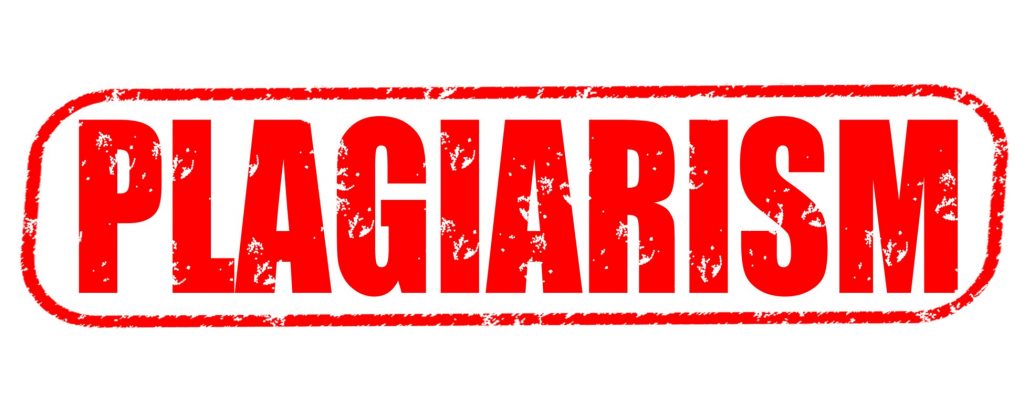
To listen to this reflection as a podcast, click here.
We seem to be in the middle of a plague of plagiarism.
And it’s far more pervasive than a few high school students copying articles out of Wikipedia and submitting them as original term papers.
Several works of highly regarded historians, including Stephen Ambrose and Joseph J. Ellis, have been shown to be at least partially lifted, without credit, from other sources. New York Times columnist Maureen Dowd admitted a few years ago that she had somehow inserted 43 consecutive words from another op-ed piece into one of her own.
Plagiarism cuts across political lines. Joe Biden had to suspend his first run for president in 1988 because of the intense scrutiny brought to bear on his habit of “borrowing” the catchphrases of other famous speakers, and his admission that he used five pages from a previously published law review article in an article of his own – but without quotation or attribution. A part of Melania Trump’s speech at the 2016 Republican National Convention was an excerpt from Michelle Obama’s speech to the Democratic National Convention eight years earlier. Ms. Obama’s contributions, unsurprisingly, were not acknowledged.
Alex Haley, Helen Keller, Jane Goodall, and Martin Luther King Jr. – all deserving of being in a 20th Century Writers Hall of Fame – have each been shown to have used other writers’ words as their own.
In the realm of pop music, George Harrison and Johnny Cash were both taken to task (and to court) over plagiarized melodies. The Beach Boys ultimately admitted that their megahit Surfin’ USA was a rip-off of Chuck Berry’s Sweet Little Sixteen, and generously gave him not only credit but a share of the royalties.
Pastors playfully acknowledge the three stages of using someone else’s great quote. Stage 1: “As So-and-So once said…” Stage 2: “It has been said…” Stage 3: “As I always say…”
To be fair, it’s easy for those who speak and write a great deal, if they fail to keep good notes, to lose track of their sources. Although some plagiarism is no doubt intentional, other “borrowings” are probably accidental.
But passing off someone else’s work as one’s own is always a serious matter.
Why is this so? As author and pastor Tim Keller points out in his book Prayer, plagiarism is a particular kind of theft. It is stealing praise from the creator who actually deserves attention and praise.
This should get our full attention on the day before Thanksgiving.
Keller steers us to Paul’s letter to the church at Rome, where the apostle declares that humanity’s failure to give thanks to God is one of the primary reasons we live in a God-defying, God-ignoring culture (Romans 1:21). We rob God of the thanks and praise that he alone deserves. “Cosmic ingratitude,” writes Keller, “is living in the illusion that you are spiritually self-sufficient.”
It’s easy to get into the habit of thinking we are the managers of our own lives.
After all, we went out and interviewed for the job that allowed us to work hard and make the money to buy the turkey and pumpkin pie that cost a whole lot more this year. We’ve knocked ourselves out so everyone can enjoy the traditional feast on Thursday.
But all of those things are gifts. Gifts from God. God alone is the Giver of our skills, our job opportunities, our energy, our bank accounts, our health, and our loved ones – and yes, even the next life-sustaining breath that we’ll take without so much as a second thought before we reach the end of this sentence.
So give thanks to the Lord. Bless his name. Give credit where credit is due. No more spiritual plagiarizing – the kind where we subtly steal some of the credit for the wonders of life that the Creator alone can provide.
We can be thankful because, as I always say, “nothing can separate us from the love of God which is in Christ Jesus our Lord.”
Although it’s possible I first read that in the Bible.
Somewhere.
